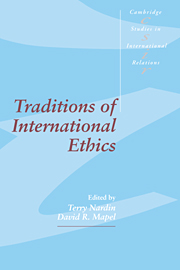When, if ever, is the prudent statesman justified in overriding the rules of common morality? Answers to this question reflect four general orientations in political theory: moral absolutism, political realism, virtue ethics, and consequentialism. To illustrate the inadequacy of all of these views, this paper focuses on a central problem in statecraft, namely, how the statesman should interpret the requirement of “proportionality” in the conduct of war. it argues that all of these traditional views distort the nature of prudence, which must sometimes be used in choosing between conflicting values in the absence of any more general decision-rule. It concludes by arguing that a fifth position, “value pluralism,” provides a more accurate understanding of the dilemmas facing the statesman.
